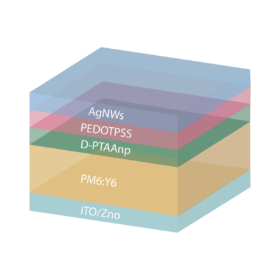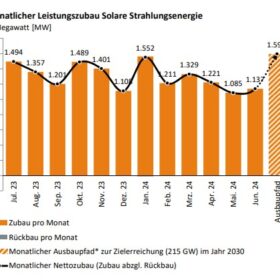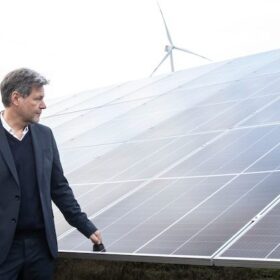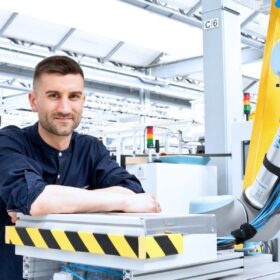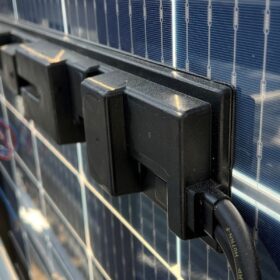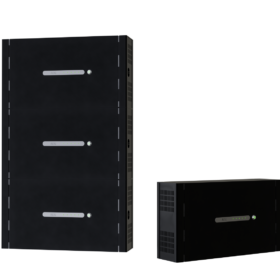Germany’s balcony PV installations hit 200 MW in H1
Germany’s Federal Network Agency (Bundesnetzagentur) says 220,000 balcony PV systems were installed in the country in the first half of the year, reaching 200 MW.
Organic solar cell based on PEDOT:PSS hole transport layer achieves 17.1% efficiency
A team of researchers in Germany has fabricated a non-fullerene acceptor-based organic photovoltaic cell featuring a bilayer solution-processed hole transporting layer. It recorded a power conversion efficiency of 17.1% and maintained 93% of its initial efficiency after 1,800 hours under continuous solar cell operation at 60 C.
German authorities arrest Solar Fabrik CEO
The German police have arrested Christian Laibacher, the CEO of German solar manufacturer Solarfabrik, in relation to an investigation by the Würzburg public prosecutor over alleged customs violations by PV wholesaler ESC Verwaltungs GmbH & Co.KG during the minimum import price period for Chinese solar modules.
Germany deployed 7.55 GW of solar in H1
Germany installed more than 1.13 GW of new PV systems in June alone. Its cumulative installed PV capacity hit 90.2 GW at the end of the first half of this year.
The Hydrogen Stream: Germany grants €4.6 billion to 23 green H2 projects
The German government has granted €4.6 billion ($5 billion) for 23 green hydrogen projects, while BP has revealed separate plans to develop a 100 MW green hydrogen installation in Germany.
Elastocalorics could replace heat pumps, air conditioning systems
Elastocalorics have the potential to replace current air conditioning and heating systems, offering significant energy savings when paired with technologies such as photovoltaics.
German researchers develop ‘communicative’ PV panels
A German research team is conducting practical tests to see how solar modules with integrated radio technology can be linked to form an overall network. The “communicative” panels should represent a simple and cost-effective solution for monitoring and controlling small-scale photovoltaic systems.
Energielenker releases ‘self-learning’ energy management system
Germany-based Energielenker has developed a “self-learning” energy management system that controls energy flows in buildings with PV systems, using AI algorithms to analyze data from all relevant components.
Growatt sees growth in Europe’s C&I solar, storage markets
At The Smarter E Europe event – recently held in Munich, Germany – Growatt shared insights on the European market. It reports a slowdown in the residential segment in Central Europe due to lower demand, but Growatt VP Lisa Zhang said she expects more growth in the commercial and industrial (C&I) solar and storage sectors.
AEG unveils 5 KWh stackable high-voltage battery
Germany’s AEG is selling new stackable, high-voltage batteries with usable capacity of 5 kWh. They come with a 10-year warranty and reportedly have a lifecycle of more than 4,500 cycles.

